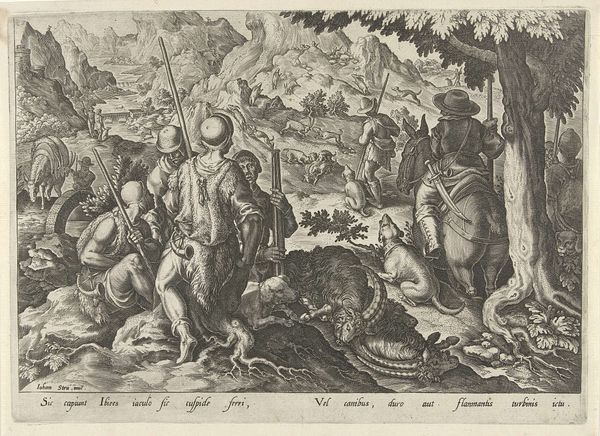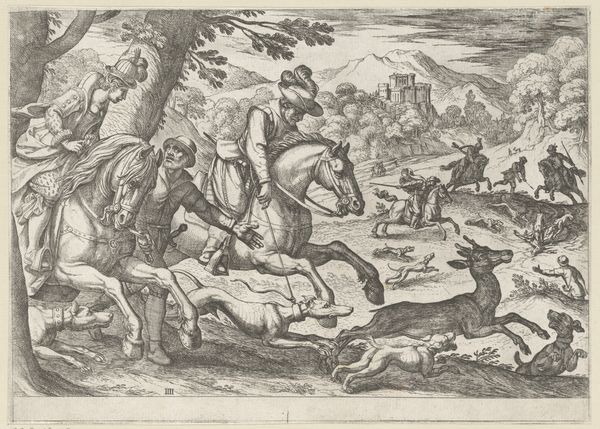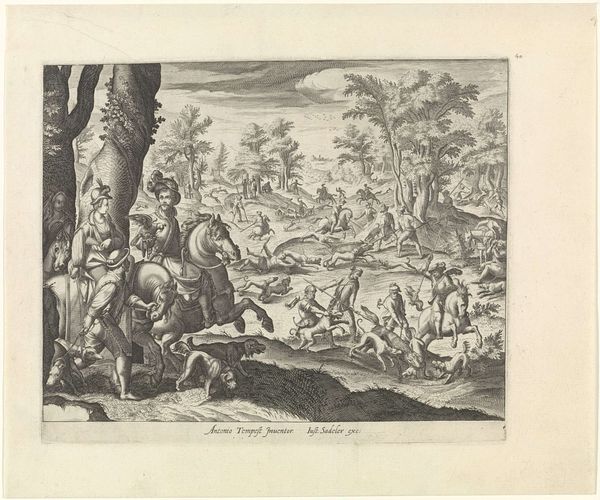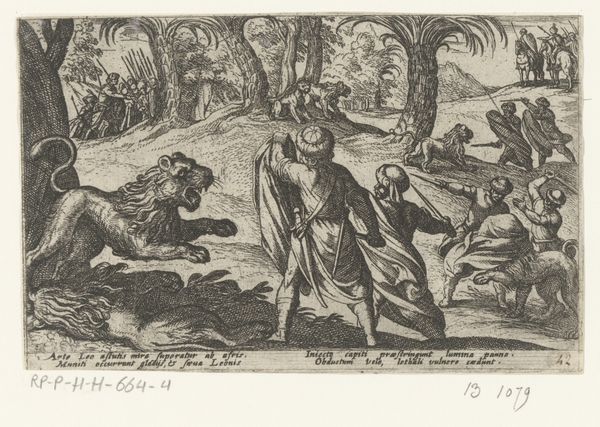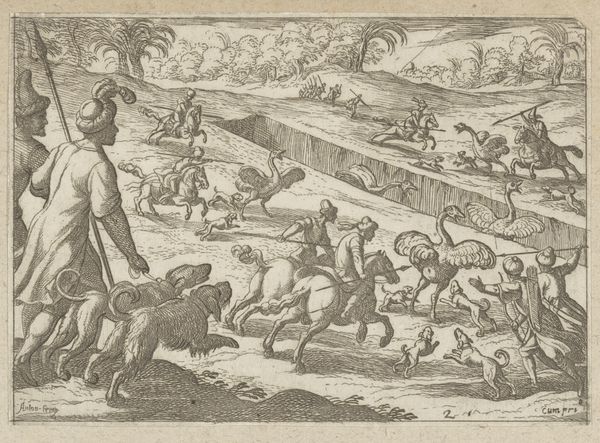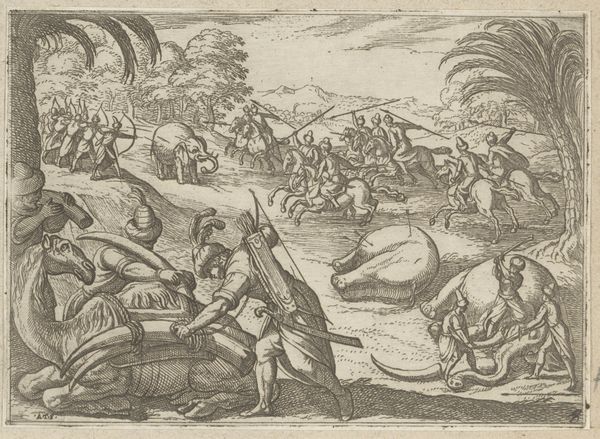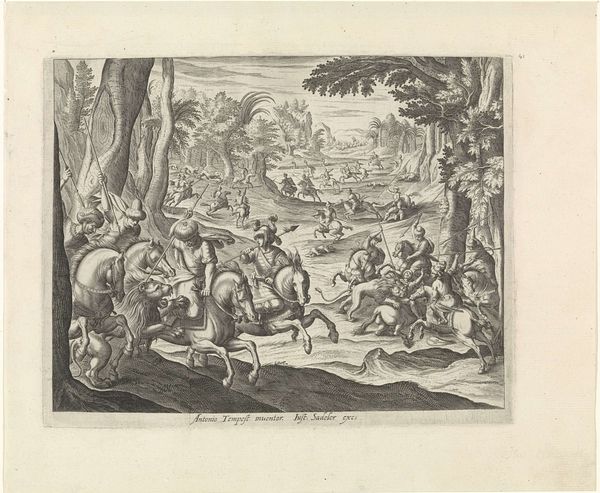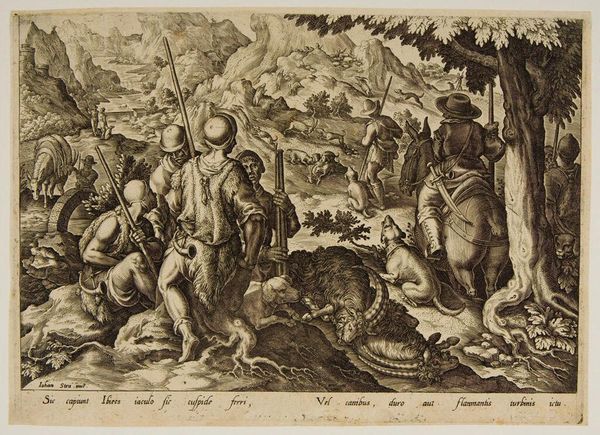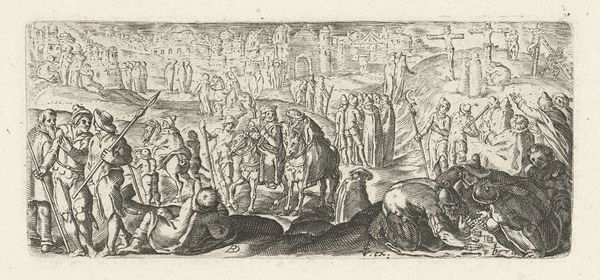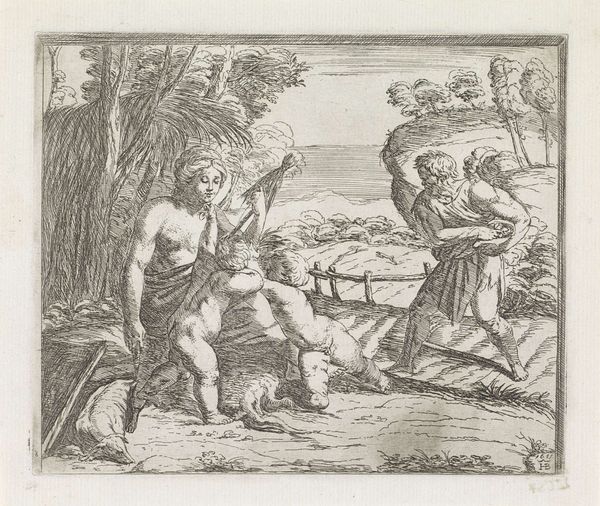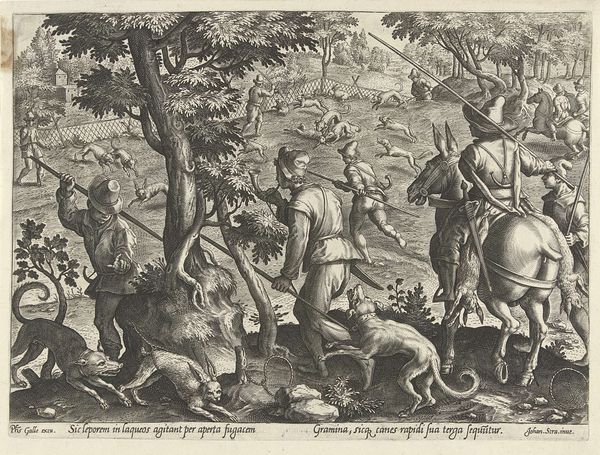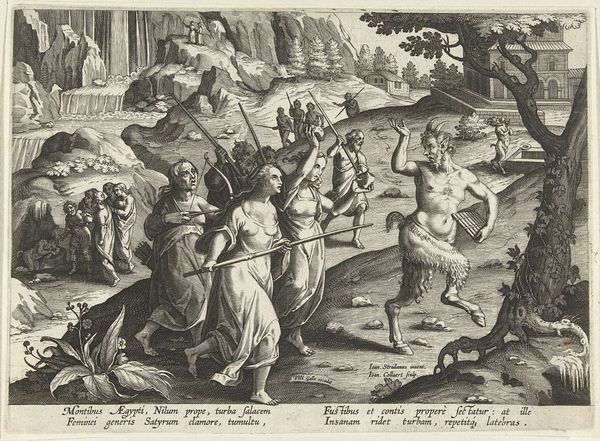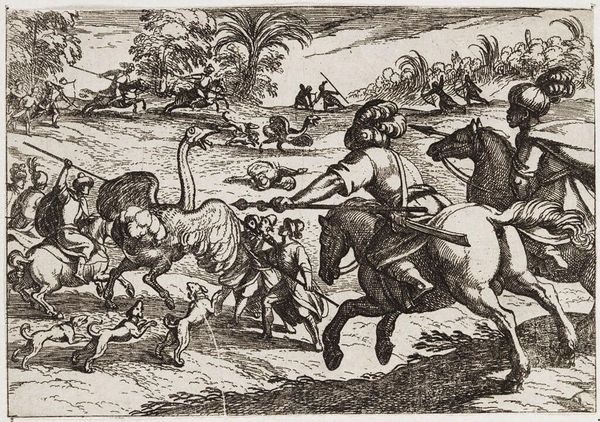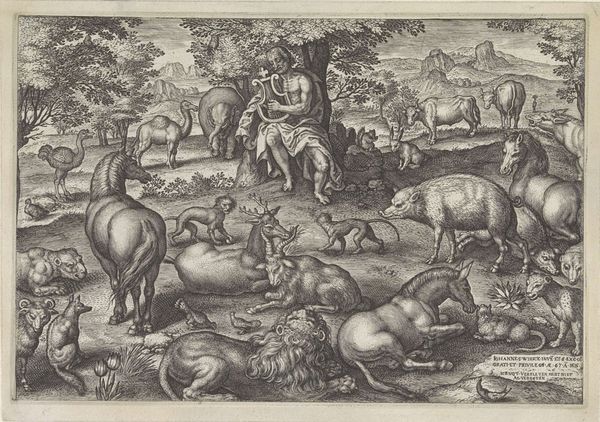
etching, engraving
#
allegory
#
narrative-art
#
baroque
#
etching
#
figuration
#
line
#
history-painting
#
engraving
Dimensions: height 133 mm, width 238 mm
Copyright: Rijks Museum: Open Domain
Editor: So, this is *Zondaar op zijn doodsbed, ca. 1720*, attributed to Jan de Ridder. It’s an etching, so black and white, and crammed with figures. It gives the sense of… moral chaos, maybe? What do you see in it? Curator: This etching speaks volumes about the socio-political anxieties of its time. The deathbed scene was a popular motif to reflect on morality, and power structures, yes. But note *who* surrounds the dying "sinner." We see figures that represent worldly authority, alongside angels and demons fighting over his soul, no less! The winged figures – who benefits most from this person’s decisions while living, and the implications of their legacy? Editor: So, the image becomes less about personal morality and more about who profits from the “sinner’s” actions? I see what looks like devils pulling him one way. Curator: Exactly! Consider also that Death, a skeletal figure, hovers nearby. Are we to read him as an impartial force, or a consequence of these power dynamics at play? The baroque style adds to the drama but also underscores the period's obsession with mortality as a societal tool. Think about who created the rules, and who reinforces them. What impact do they leave on future generations? Editor: It's unsettling, seeing death manipulated like this. It forces me to reconsider the forces that surround the end of life. Curator: It's meant to be unsettling! Art should provoke dialogue, should confront the uncomfortable. These artists intended their message to reverberate throughout society; let's continue to question that impact today! Editor: Thank you; I will now look differently at baroque allegories, and at whose narrative is elevated. Curator: It's all about context and perspective! The historical informs the present, always.
Comments
No comments
Be the first to comment and join the conversation on the ultimate creative platform.
